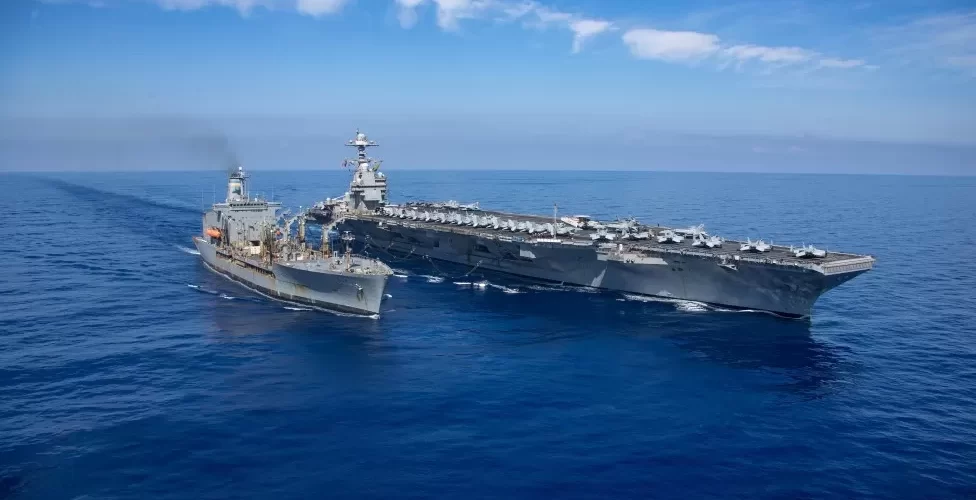The United States declared its full support for Israel and provided it with military aid. But what are the limits of American engagement when the scars of past relations still remain in the region? In his initial response to the Hamas attack on Israel, President Biden made it clear which side he is on: “The United States stands with Israel”; He said. “For those who think they are taking advantage of the situation, I have one word: no,” he added. This warning was clearly aimed at Iran and its allies. The Pentagon says , U.S. troops in Iraq and Syria have come under repeated attacks in recent days and that a U.S. destroyer in the Red Sea intercepted what it described as “potential” missiles fired from Yemen; on the way to Israel.
The United States already has an aircraft carrier strike group in the Eastern Mediterranean and will soon add another in the region. Each aircraft carrier carries more than 70 aircraft, which means significant firepower. Biden also put thousands of US troops on alert so they could advance into the region if necessary. The United States is Israel’s largest military sponsor, providing approximately $3.8 billion in defense aid annually. The Israeli aircraft bombing Gaza are American-made, as are most of the precision-guided munitions currently in use. Some interceptor missiles for Israel’s Iron Dome air defense system are also manufactured in the United States. The United States sent arms shipments even before Israel requested them.
ADS
President Biden asked Congress on Friday to approve $14 billion in funding for his Middle East ally’s war chest as part of a $US105 billion ($87 billion) military aid package. The next day, the Pentagon announced that it would send two of its most powerful missile defense systems to the Middle East: the Terminal High Altitude Area Defense (THAAD) battery and additional Patriot batteries. But would the American president really be willing to be drawn into another war, especially in an election year? Recent U.S. military adventures in the region have proven costly—politically, economically, and in terms of American lives.
Michael Oren, former American and Israeli ambassador to the United States, believes that President Biden has already taken the first step by deploying American aircraft carriers to the region. “You don’t pull out a weapon like that if you don’t want to use it,” he said. However, Seth G. Jones, director of international security at the Center for Strategic and International Studies in Washington, says the United States would be reluctant to directly intervene militarily in a war in Gaza. The presence of carrier strike groups, he said, could be useful “without firing a single shot,” particularly because of their ability to gather intelligence and provide air defense.
ADS
Any commitment would be “a last resort,” he said. This is primarily a threat from northern Israel, particularly from the militant group Hezbollah, which is currently a concern for both Israel and the United States. The Iranian-backed group poses a much greater threat than Hamas in Gaza. It has an arsenal of around 150,000 rockets, which are more powerful and more precise than those of Hamas. And it has already engaged in a firefight with Israel, its arch-enemy. Oren fears that Hezbollah could intervene while Israel is “already deep in Gaza, already busy and tired.” In this case, Oren believes it is possible that the United States could use its considerable air power to attack targets in Lebanon, although he does not see a situation in which America would choose to use ground forces. Secretary of State Antony Blinken and Defense Secretary Lloyd Austin assured that the United States would respond if the situation escalated and American personnel or troops were targeted.
The United States has the right to defend itself, Austin said Sunday, and will not hesitate to “take appropriate action.” Jones acknowledges that there is a risk of the conflict expanding, but believes that the United States’ deterrence “actually increases the cost of risk for Iran and its proxies.” He said that if Hezbollah were to launch a major offensive in Lebanon from northern Israel, it would “probably face a fairly serious response.”He notes that U.S. forces in the region have already faced limited attacks from Iran-linked groups. Israel is also not seeking direct military support in its war against Hamas. Danny Orbach, a professor of military history at the Hebrew University of Jerusalem, points out that Israeli military doctrine states that Israel must be able to defend itself.







Add comment